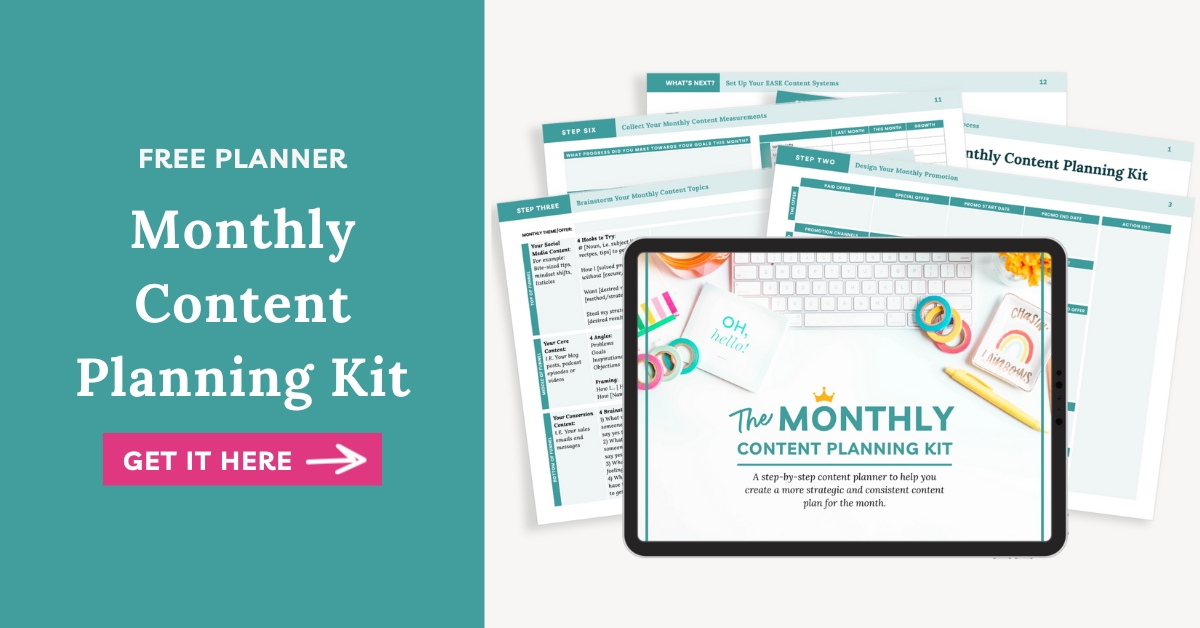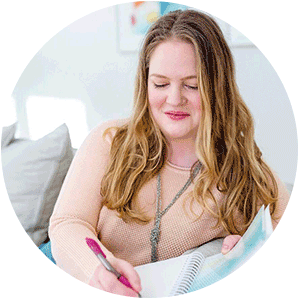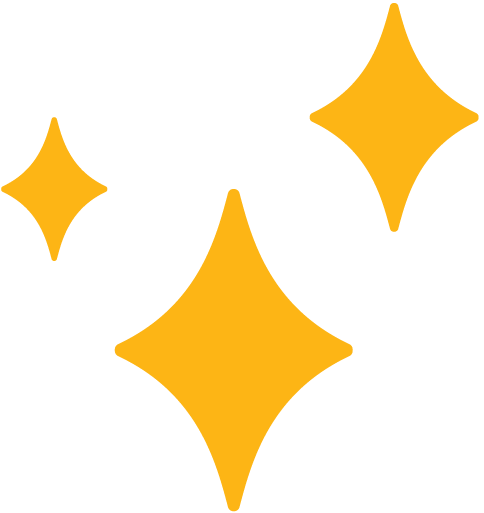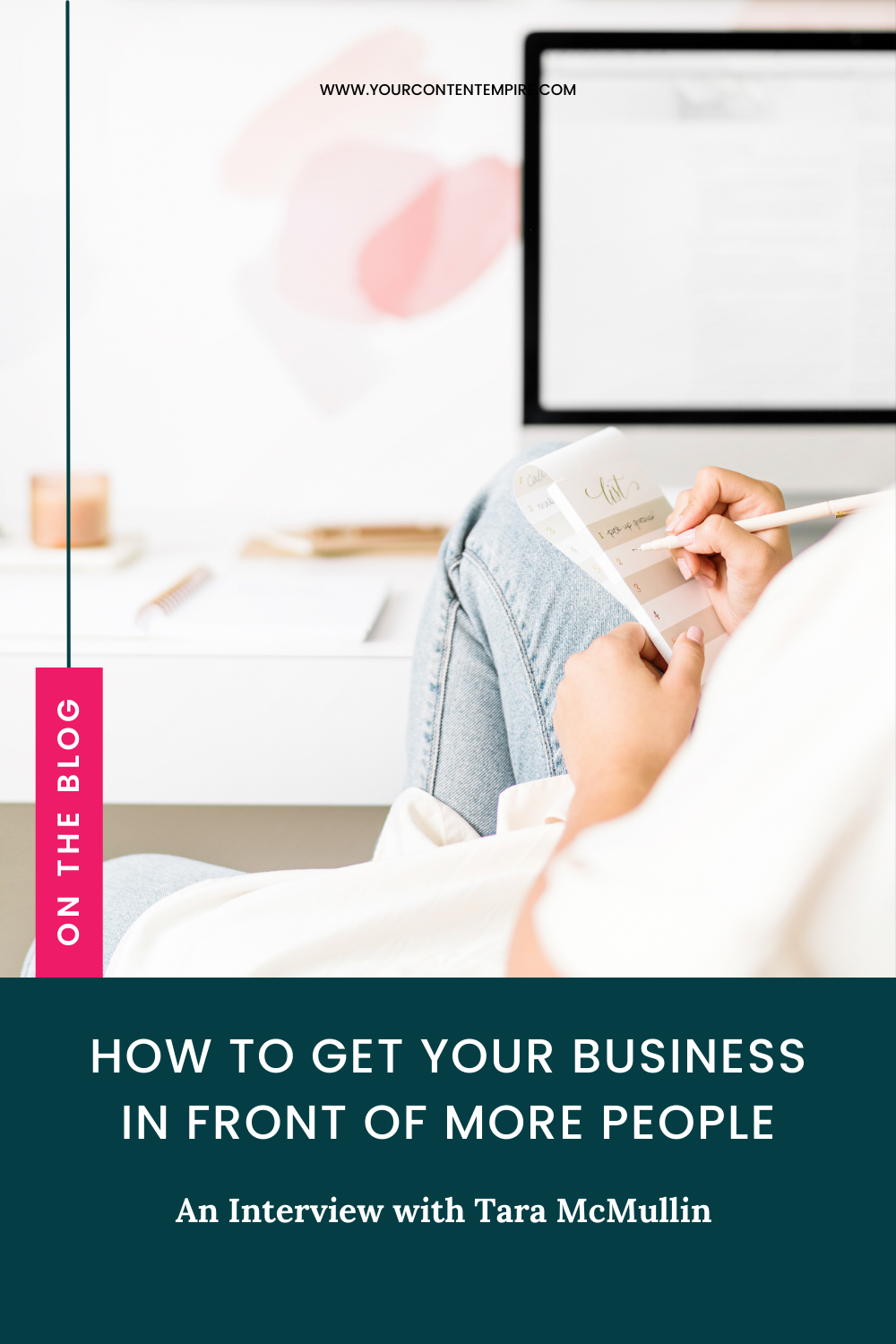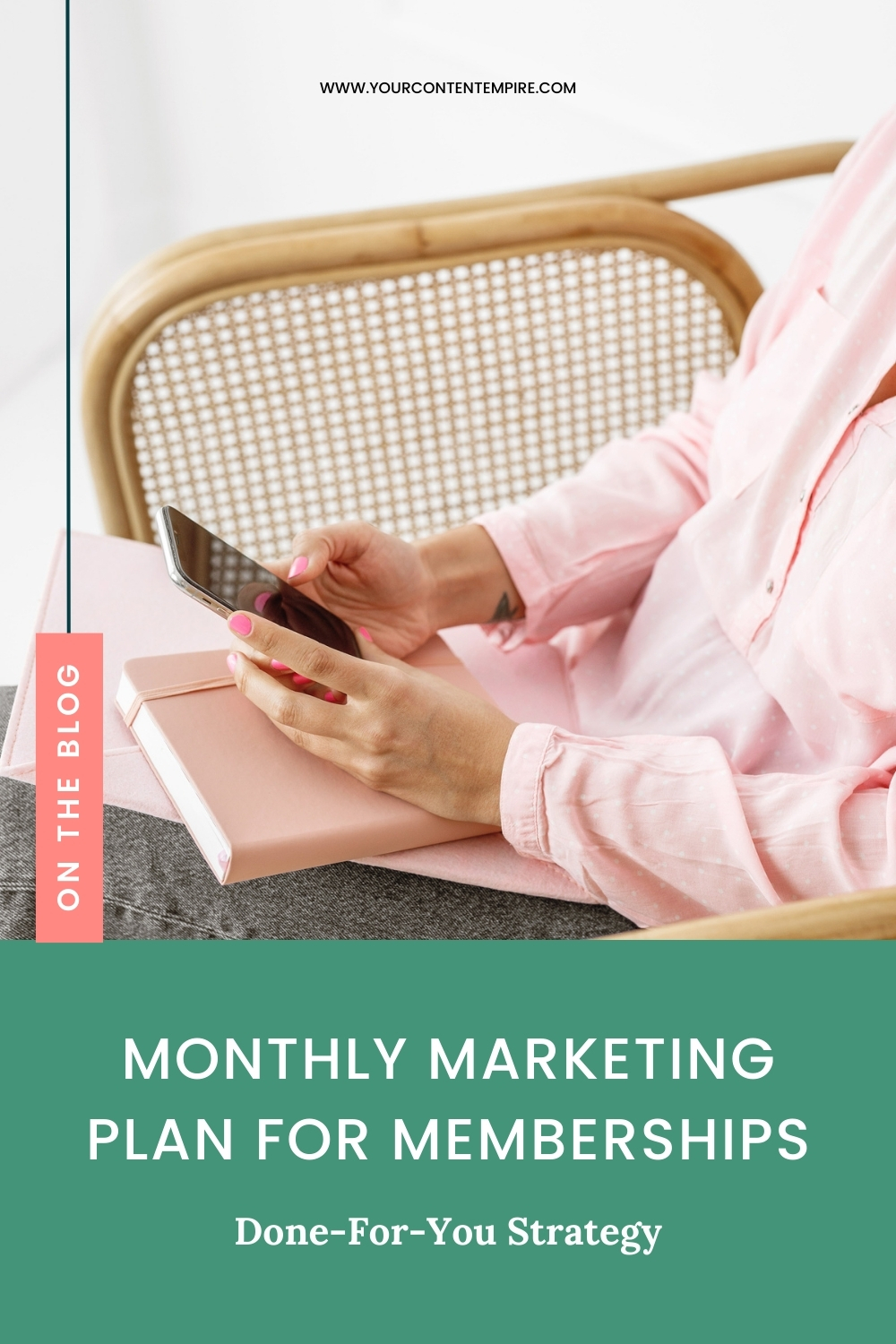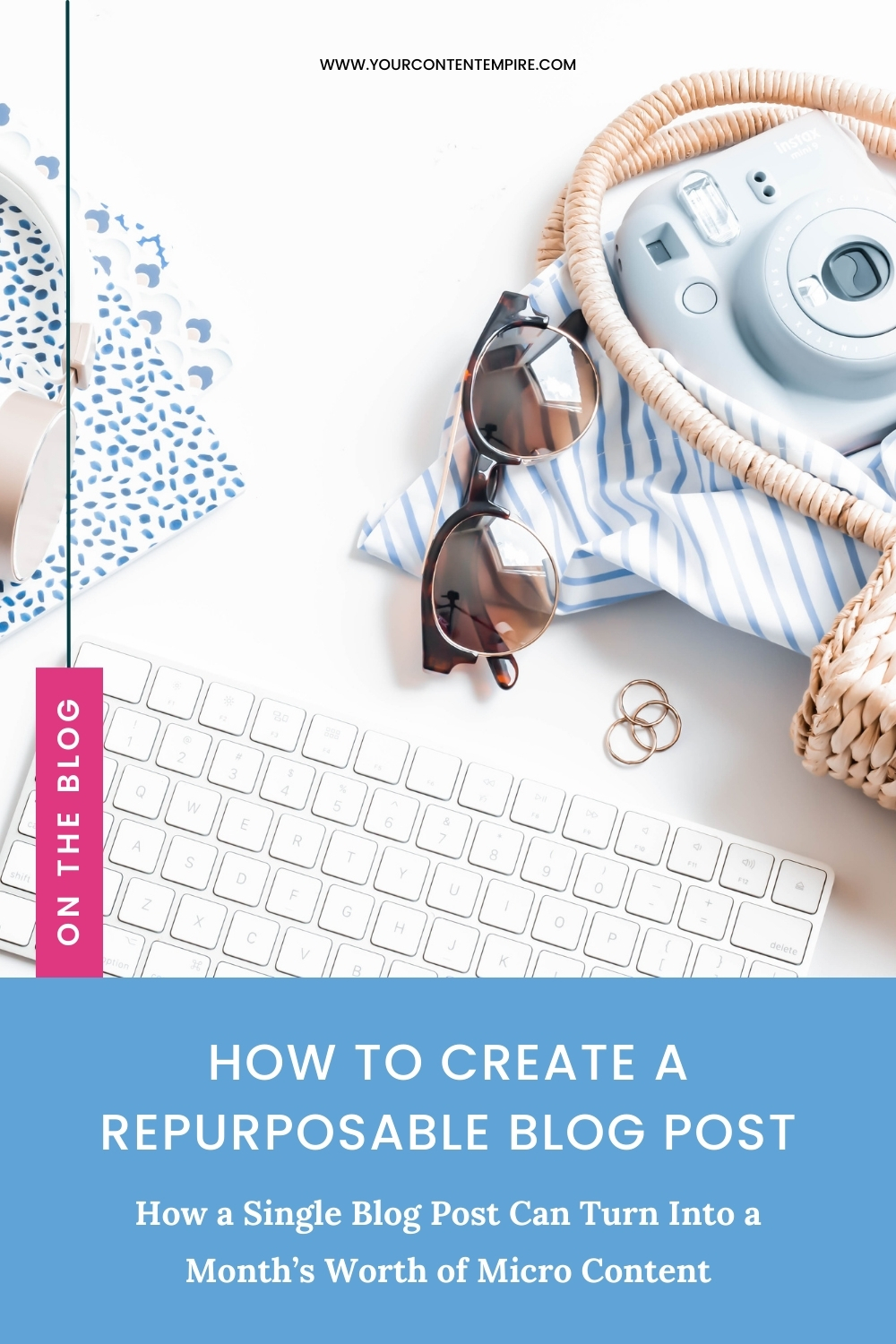Is your biggest struggle with growing your business all about getting in front of more people? Tara McMullin from CoCommercial has your entire roadmap laid out in this episode about how to build a thriving small business that’s an eyeball magnet for your ideal clients.
Tara McMullin is on a mission to turn today’s small business owners into tomorrow’s economic powerhouses. She’s the founder of CoCommercial, a platform for helping small business owners work together to overcome daily challenges, solve big problems, and achieve even bigger goals. She’s also the host of What Works, a podcast that takes you behind the scenes of successful small businesses and shows you what’s working in marketing, operations, time management, product development, and more. Entrepreneur named it one of 24 top women-hosted podcasts for business owners.
Tara is also a sought-after speaker, educator, and a bestselling Money & Life expert on CreativeLive. Tara’s work has been featured in Fast Company, Inc, DailyWorth, Forbes, and The Huffington Post.
Find out more about her work at CoCommercial and request your invitation by going to cocommercial.co
Key Takeaways from this Episode
What has your business journey looked like from when you first hung out that digital “come in, we’re open sign” to where you are today?
- There have been so many moments I have hung out that digital come in we're open sign, but I can go way back to the very first one, which was a website that I developed in January of 2009, which means I'm coming up on my big old 10 year anniversary here. Which is hard to believe, 10 years of self-employment and business ownership, but it's true. 10 years ago I started this website called HandmaidinPA.net, and the goal of this site was to bring together the maker and artist community in Pennsylvania where I live. And I was really intrigued by the whole new maker movement, the new craft movement, all of these amazingly creative people putting their talents to work in terms of making products that people wanted to buy on platforms that were still new at the time, like Etsy and Etsy's competitors at the time, although I think may they all rest in peace at this point.
- So it was a blog, but it was also sort of a community site. I was really interested in telling other people's stories. I was really interested in highlighting the great diversity of makers within our state, and just really bringing people together and helping them form relationships with each other. So that site had initial relative success for the kind of market that we were operating in, and it allowed me to venture into a lot of new territory in terms of talking about what I was doing and talking about how I was telling people about it on social media. And that kind of evolved into while maintaining the storytelling aspect and the community aspect, also talking a lot more about what it means to market your business with content, and what it means to be on social media, and what it means to share your message on all these different platforms.
- And I did that both on the blog, and I did that in local workshops where the Pennsylvania Guild of Craftsmen would bring me in and teach their artisans how to do some of the things that I was doing. And in that process just gained a lot of visibility in that market. And through that process then was able to actually purchase a blog from someone else, someone who was moving from the blogging space into the product development space, and that brought my platform to a whole new level. Now I had a global audience of people that were paying attention instead of a state-wide audience of people, and I was also about to talk about a lot more topics.
- Until finally we get to where we are now, which is kind of back full circle where my job, my goal, my vision is bringing small business owners together in community, telling their stories, helping them work together to solve each other's problems instead of me trying to solve all of their problems. And I just … the journey has been wide-reaching, but it's also really funny to me and interesting to me that I find myself back so close to where I started with this idea of community building, and bringing people together, and helping them work together to solve their problems.
- So that's sort of the journey in a nutshell. I'm happy to talk about any of the parts that I skimmed over, but it's been a long and wild ride.
In terms of legacy – what is the big mission you’re here to accomplish with your business?
- So legacy is the number one question that I ask myself today. I think that a lot of the things that I've done in my business have been valuable, and worthy, and helpful to people. And at the same time, I think they've been kind of shortsighted. I think that a lot of business owners experience that in the course of their business. We're trying to figure out how to get paid for doing work that we love. We're trying to figure out what it means to have a business. We're trying to figure out what it means to be an owner, to be an entrepreneur. And we make a lot of missteps in that path because for most of us, definitely for myself, I've been recreating a system that I was familiar with, recreating a job, recreating the kinds of transactions that I'm used to, that feel familiar to me, instead of looking for ways that I can build something that is aligned with my values, that is transformative for people, and that can stand the test of time whether I'm involved with it or not.
- Yeah, so I love this question of legacy because it really is the number one thing that I am thinking about on a daily basis now. How am I building the thing that I'm building so that it creates transformative results and that those transformative results do not, in any way, shape, or form, depend on me? So for me, the transformative results that we're really looking to create now are giving small business owners the tools, and the capacity, and the platform to help each other out. Because, and I think this has been true for all time, small business owners are pretty isolated people. We're people who work from our home offices, maybe back in the day more often we were working from brick and mortar shops, and the only people that you may talk to through the day are the couple of people that cross your threshold randomly or who pop up because you've got an interview, or you're doing a coaching call.
- But a lot of the work of your business is done in your head, in front of your computer, and you just don't have a lot of people to talk to, you don't have a lot of people to bounce ideas off of, you don't have a lot of people to tell you, hey that thing that you're struggling with right now, I figured that out three months ago let me tell you how I did it so you could do it too. And so what I see is a lot of small business owners really craving that access to people who've figured it out, people who get it, people who have gone on a similar journey to them but have picked up different experiences and different solutions along the way. And instead of finding easy access to those things, instead they're finding easy access to really expensive online courses, they're finding easy access to gurus that want to tell them how to run their businesses, they're finding really easy access to a lot of false marketing.
- So what our whole goal is, is creating that place where it is easy to actually just talk to people about what's going on and to ask them how they've solved problems, and to ask them about what their experience is, so that in the process we create more empowered, more resilient, more self-dependent business owners. Because my take on things, my belief, my firm belief, is that the more we empower small business owners, the more small business owners like us that share our values, are the ones that are creating our economic future, the more compassionate, the more inclusive, the more egalitarian that economic future is going to be. So what we're creating in terms of community is also what we aim to create in terms of a much broader legacy at the same time.
What's the #1 burning question you get from your community about contingency and what-if business planning and what do you tell them?
- I think there's a lot of questions that speak to mindset and identity, and I think those may actually be deeper more burning questions than the one that I'm going to land on for the answer to this question. But I think it takes a long time to get to those questions, and I think it takes a lot of self-discovery and awareness to land on those big questions.
- The number one burning questions I see people come to us with, and really show up time and time again with, is how do I get in front of more people. How do I get my business in front of more people? How do I get more people to see my product? How do I get more people interested in buying what it is that I make, or that I create, or the service that I provide? I would say at least 50% of what we see at CoCommercial can boil down to that question in one way or another. Sometimes it has to do with email marketing, sometimes it has to do with webinars, other times it might have to do with social media or getting clients on the phone. All of those more specific variations of that question come up, but when it comes down to it, it's how do I get more people interested in what it is that I'm selling? How do I help the people that have the problem that I solve with the solution?
- And I think that the answer to that question is both very personal to the business and the business owner that's asking it, but it also almost always boils down to talking to people. I think that in our fast paced, internet, online, social media world, when we think we're talking to people we're really not. I think that if more small business owners paused to ask themselves how they could really actually talk to people, not broadcast at people, not shout at people, not meme at people, not video at people, but actually talk to them, have conversations with them, have a back and forth, and actual applied those kinds of tactics and that strategy to their marketing, and their sales, and just their overall business as a whole, I think we'd have a lot more successful small business owners.
- And really, that's probably one of the number one things that I see being the difference between small business owners that thrive and succeed over the long haul and small business owners that tend to peter out or slog by on a day to day basis. The successful, thriving ones, they're talking to people and they never stop talking to people. Yes, they might also a lot of leverage communication, they might do a lot of broadcasting, blogging, vlogging, whatever it might be. But at the heart of that strategy is actually talking to people. So whatever that might look like for you, for your business, for the ways you like to communicate, I think we just need to ask ourselves more often, how can I talk to people for real, not for internet.
What do you think is one piece of advice that you have for, let's say, Visionary Jordan who sees everything that you've built, the success you've had doing it, and they want to create their own version of that, but they have no idea where to start. They're maybe feeling a bit overwhelmed. What advice do you have for them?
- Yeah I mean, it really does boil down to the same answer, which is talk to people. And I can say, since you asked it in terms of my experience and the success that I've found, I can tell you that any time that I start to feel less successful or I start to feel like things are harder, more difficult, it's because I've stopped talking to people, it's because I've really put all of my emphasis on broadcasting, it's because I've put all of my emphasis on a mass communication. And any time I pause and so, whoa whoa whoa, and actually get back to talking to real people, business picks up again. It may look different, things might have changed, but that's also you know where to go because you're talking to people.
- So I think when you're just getting started and you don't know where to start, or maybe you have started and you're like, what now? I think again, the question comes back to … or the answer comes back to, how are you going to talk to people to learn what your next step is? Because your customers will tell you what your next step is, your colleagues will tell you what your next step is. And they're not going to say, here this is what your next step is, most of the time, because they don't actually know. But they're going to give you the information. Those conversations are full of invaluable data that you can use to actually make the decision that's right for you in that moment.
- And if we're looking at the very, very beginning stages of any business, it really is talking to people. And then once you've talked to them saying, here's how I can help, would you like that help, and actually making the sale from that conversation in whatever form that looks like. Because early on, you're not gonna have a signature program, you're not gonna have the perfect services package. Let's say you're a maker of some sort, you're not even going to have the perfect physical product. Everything you do is gonna be custom, everything you do is gonna be bespoke. And the only way you get to a custom solution is by talking to people.
- So talk to people, create the custom solution, talk to someone new, create a new custom solution, and very quickly you're gonna start to see patterns that you can use to create just a small amount of scale at the beginning, and then you do the same thing over and over again. And then you create a little bit more scale, and then you create a little bit more scale from there. And eventually that process of talking to people, and creating whatever that next step is for you, is going to lead you to an organization, a business, a company, that is actually operating in a leveraged, efficient way that's profitable for you and highly valuable for your customers.
So shifting gears to marketing – How do you stay motivated and inspired when it comes to content creation (especially after all this time)?
- It's such a good question. I am constantly inspired to create content, that is so not a problem for me. But the reason for that is because I'm an extremely curious person, that's just my M.O. is that I want to know how things work, I want to know how people are doing what they're doing, I want to know the history behind things, I want to know what the process was. And I think curious I think has a lot of positive connotations, so I'm not trying to pat myself on the back with that. But what it really comes down to is observation. One of my main forms of communication is actually observation. So that kind of goes back to the listening piece too.
- But anytime I am making the space to observe what other people are doing, trends, whether it's something an individual is doing or it's something that I see a whole lot of people doing, any time I'm making space for that observation it inspires me to create content. I've got to take what I observe and I have to give you my opinion on it, my perspective on it, and I have to tell you what's going on. Analyze what I see and either why it's working or why it's not working.
- So I've built my whole content empire on exactly that process. Observe, observe, observe, observe, create. Observe, observe, observe, observe, create. Whether it's my blog, or it's the podcast that we produce, or it's just random content on Instagram, or Facebook, or wherever, that is the heart of the process and it's also what keeps me inspired on a day to day basis.
Can you walk us through a typical content creation day for you? What’s your process for creating new content look like?
- Content for us over the last two years has been really influx. I kind of want to start this out by saying that because what my content creation looked like a couple of years ago is completely different than what it looks like now, and it's because we're creating completely different content.
- Two years ago I had a very information-oriented, coaching, training-oriented business, so my content creation fed that. When we switched to a community model, my content I did not realize also needed to change. So we were trying to run a community-based business model with an information marketing-based content strategy. Those two things do not go together well, it creates a huge disconnect between what you're trying to sell and the way that you market.
- So over the last two years I've been learning how to create content that supports our community-based business model. And what was a phenomenal discovery for me was that this podcast that we had been doing that never really fit in but I was obsessed with because it allowed me to observe and get curious about other people's businesses, was that the podcast was going to be the perfect form of content marketing for our community-based business model. And the reason for that is that on the podcast I am able to model the kinds of conversations that we have in private inside of Cocommercial, in public on the podcast. So instead of making all of the content about my opinions, my perspective, what I bring to the table, because Cocommercial is not about me at all, I'm able to step in as the proxy member, the proxy listener, as the host of the podcast, as the person asking the questions and think, all right what do my people need to know, but most importantly what do they want to know about how this person's business works.
- That's sort of the overall strategy behind the content that we create now. The way our podcast works is that … and actually this is in flux too, we're kind of adjusting and making more efficient how our podcast process works. So I'll kind of talk about it in a future state instead of backtracking to how it has been done. But we've got a podcast producer who helps me with scheduling interviews, sourcing the interviews. We do a lot of hand-sourcing for our interviews. As a podcaster you know, you get 100 pitches a day of people who would like to be on your podcast, and most of those pitches are not great. And they're especially not great for our podcast because our podcast is pretty different. So in order to have the kinds of people on our show that we really want to have, I have to go out and say, alright who do I want to have on the podcast, and explain to them why our show is different, how our show is different, and convince them to come on the podcast.
- That's sort of step number one, is having our producer help me plan and source those guests, and then book those interviews. From there I do the interviews. Those interviews are all very … as much as possible I try to make them on a very specific subject. So instead of asking people all about their businesses, I might just ask them how they manage their tasks on a day to day basis, and we'll go through a whole bunch of different facets of that, or how they manage their team members, or how they developed their last product. And we'll walk through that entire process. So then that guides the rest of the content that we create from that podcast episode, our show notes are based on that, and I don't write our show notes we have another team member that writes those show notes. Our show notes are created from that, we have some additional distribution channels that we put those show notes in, we use Medium for that. And I'm kind of involved in that process but largely our producer is doing that.
- Then I will use … I kind of come back into the content process to create additional assets. So that might be Facebook posts, it might be an email, it might be a whole separate other blog post, LinkedIn updates, Instagram posts, that are all around whatever topic or conversation that I had with that week's guest. And my goal is to as much as possible, although in today's media landscape it's difficult, but to create a conversation from the conversation that I had with our guest. So that's thinking through tell me about this in your business, how does this work in your business, whatever the question might be I'm trying to think through how to get people engaged with that idea, not just getting them to listen to the podcast. So it is definitely both sides.
- I want as many people as possible to listen to the podcast, but it's also thinking through how do I utilize this to again mimic the kinds of conversations that we find so valuable at Cocommercial but that people are rightly a little skeptical of. Are they really talking about these kinds of things? Yeah, we really are, here's the proof. We're gonna talk about it out here, there's 20 other conversations like this one way back at Cocommercial, come join us. So that's kind of how we're thinking through things. I'm not sure that that necessarily answers your day in the life question, but that's the process we use for our main content marketing piece.
How would you define a content empire as it relates to your own business and what you’ve built?
- I would define a content empire as … you know, from my perspective, and I don't think this is necessarily gonna be true of every single business, but for me the way I think about my content empire is that it is one and the same as my brand. My content is what I use … excuse me. I knew that was gonna happen. My content is what I use on a day to day basis to reinforce what we want to be known for, the segment of the market that we want to own, the values that we want people to associate with our business, and the reputation that we want to have.
- So while I do certainly think of content as educational, as valuable, as useful, as a way to tell a story, I also think about it as literally every single piece of content, no matter how small, I put out into the world or my team puts out into the world, is a reflection on our brand. And the sum total of that, the content empire of that, is our brand. It doesn't matter what I say our brand is. If our content doesn't add up to a fully fledged picture of that brand, that brand doesn't actually exist.
Lightning Round
Latest content or marketing tool discovery? One is an app called Clipomatic that creates captions on your Instagram story videos. And the other one is called Wavve.co and it turns audio files like a podcast in to videos. And both of those have been really helpful to me lately and just creating more ways for people to access the same content.
Most profound business book you’ve read? The Art of Community. It's mostly business oriented, obviously it's specific to the community side of things that I'm really, really passionate about. But it's by a man names Charles Vogl, and just an absolute master class in what community actually means and how it applies to organizations and businesses.
What is one marketing trend that you're passing on for now? Challenges, seven day challenges, five day challenges, 30 day challenges. Right now, just not interested, don't think I ever will be.
2018 or 2019 planner of choice? I am not a planner person. I've used them in the past fairly successfully a couple of years ago. But my goal for 2019 is to get my plans and my to dos, and just everything that I need to do, into Google Drive. Really just working from documents where I can see the big picture all the time.
Where would you invest $5,000 in your business today? This one is really hard for me, but I think where I would invest $5000 right now is in … oh man, I had an answer to this and now I'm hedging it. I'm gonna say video. I think I would love to hire a video producer who could help me through … just to even imagine a video project that I could see from start to finish, because once I do something once I can do it again. But video I think is probably one of the places where there's a lot of opportunity for us and I'm not fully utilizing it.
Links for this Show

